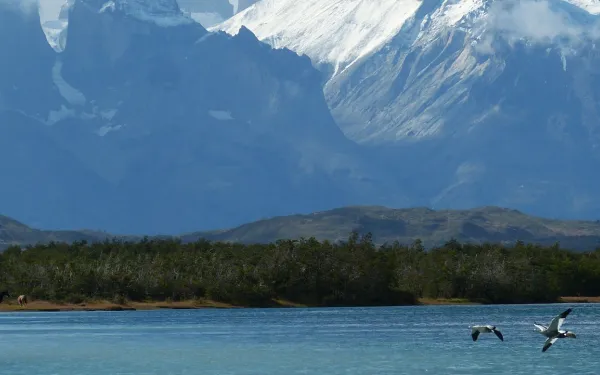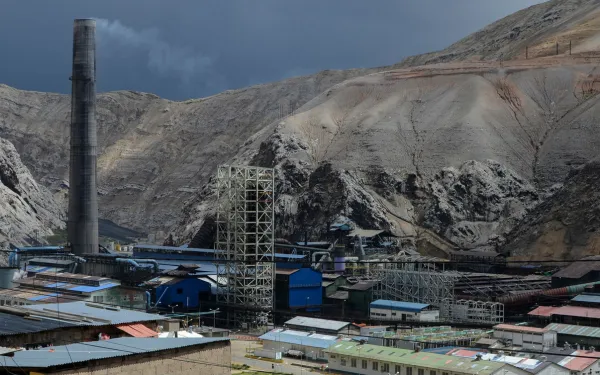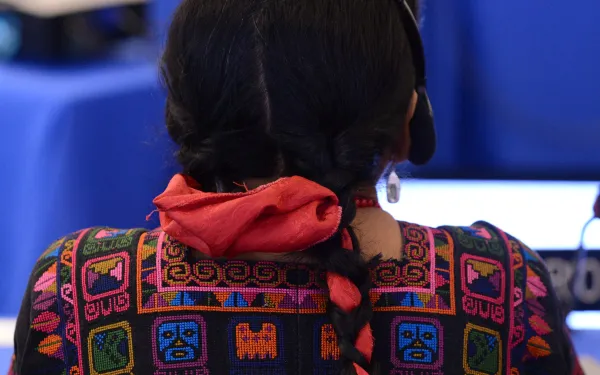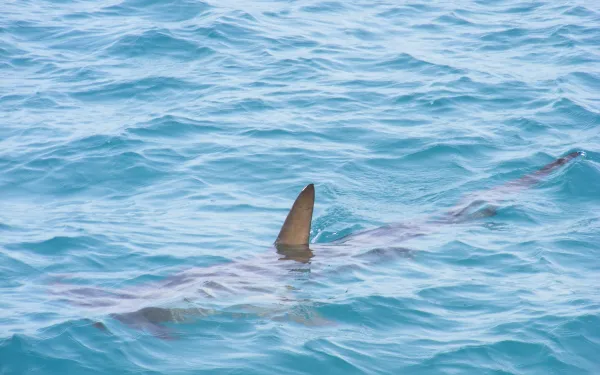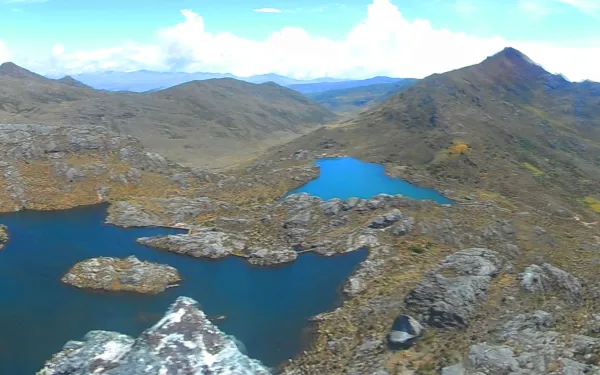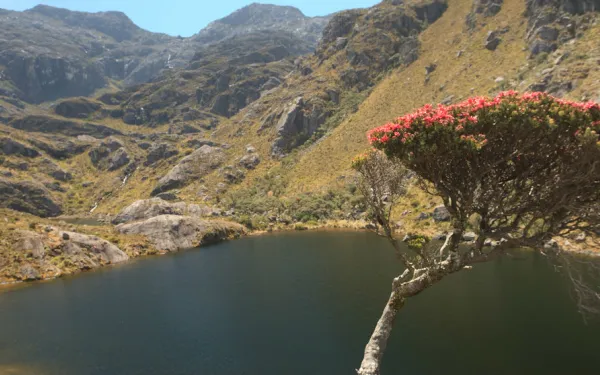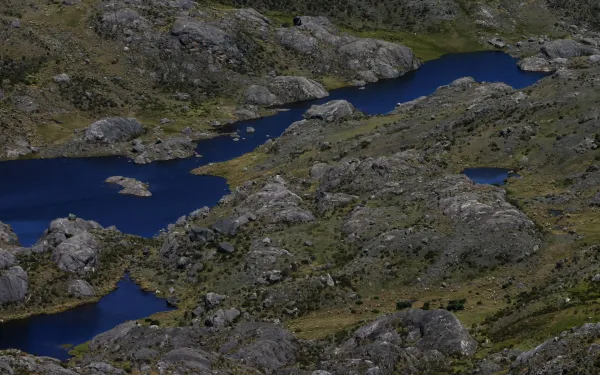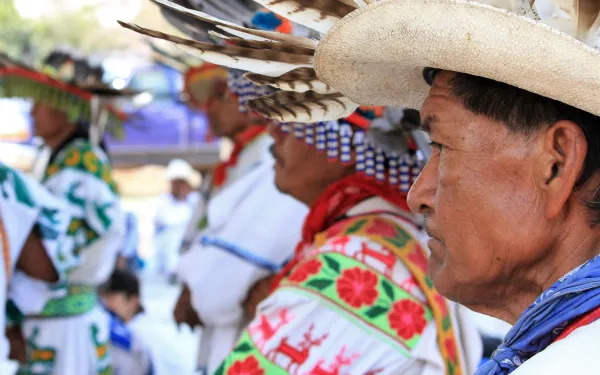A group of organizations delivered their report highlighting more than 60 cases of violations across the country. Mining, infrastructure and energy projects—including hydroelectric and wind—were responsible for the greatest number of human rights violations.
Mexico City, Mexico. On the occasion of the United Nations Working Group on Business and Human Rights’ official visit to Mexico, a coalition of more than 100 civil society organizations, movements and networks prepared a report outlining cases of human rights violations perpetrated by corporations in Mexico.
The report highlights Mexico’s current human rights crisis, which has been recognized by various UN agencies[1] and the Inter-American Commission on Human Rights.[2] It lays out the clear dangers facing those who protect human rights, the land and their own territory.[3] Documented cases of human rights abuses involve 50 foreign, 41 national, and eight public companies. More than half the cases involved intimidation and/or attacks against human rights defenders. The most frequent violations were to the rights to: land and territory; access to information; health; a healthy environment; and consultation and free, prior and informed consent.
During the Working Group’s regional visits, affected communities will show the experts the negative impacts caused by companies linked to mining, wind power, hydroelectric dams, agribusiness, infrastructure, oil and gas exploitation, real estate, tourism and maquilas (manufacturing facilities), among others. At the suggestion of civil society, the Working Group will meet with companies including: Grupo México, Grupo Higa, Grupo BAL, Bimbo, Goldcorp, TransCanada, Eólica del Sur, and CEMEX. They will also meet with the state-run production companies, Petróleos Mexicanos (Pemex) and the Federal Electricity Commission (CFE).
Situations in Mexico that systematically hinder compliance with the UN Guiding Principles on Business and Human Rights include: State Capture: complicity, corruption and impunity. In many documented cases, the Mexican State, at all levels (federal, state and municipal), has served business interests above public interest. This has been evident in: the promotion of rules and regulations that benefit business interests over human rights; the use of public force against peaceful social mobilization; the support of extractive projects against community interests; the lack of inquiry and sanction by the judiciary regarding allegations of human rights abuses; and the criminalization of environmental advocates. Structural reforms that weaken the protection of human rights and support companies, such as the energy reform, which does not always consider its impacts on human rights, and does not guarantee the participation and right of access to information of affected communities. Lack of consultation and the free, prior, informed, culturally appropriate, and in good faith consent of affected communities; lack of due diligence on the part of companies; and the proliferation of megaprojects with severe impacts on human rights. Lack of access to justice and non-compliance with rules and judgments, by companies as well as the Mexican State. On multiple occasions, affected people who have reported rights violations have later been the victim of attacks. And, even if a court—including the Mexican Supreme Court— ruled in their favor, the fulfillment of that ruling was not observed. Reduction of participation mechanisms and an increase in abuses against human rights defenders. The cases illustrate an increase in murders, criminalization, threats and attacks on human rights defenders who have spoken out against mega-projects and business activities.
In 2011, the United Nations Human Rights Council issued the "Guiding Principles on Business and Human Rights" in order to empower States to exercise control over business activities, ensure due diligence, and guarantee access to effective and appropriate remedial measures. In order to monitor the application of these principles, the Council established the Working Group on Business and Human Rights, whose visit Mexico from August 29th to September 7th 2016 will be their second visit to Latin America.
On behalf of the organizations and communities that prepared this report, we hope that the conclusions reached by the Working Group at the close of their visit will reflect what Mexico truly needs. We urge companies operating in Mexico, as well as the Mexican State, to consider the recommendations seriously and implement them in current and future operations.
For more information in social media, following along: #ONUenMX
The report was created with the participation of the following organizations and human rights groups (in alphabetical order):
Alianza de la Costa Verde
Ambiente y Desarrollo Humano
Asociación Interamericana para la Defensa del Ambiente (AIDA)
Bios Iguana
Campaña Nacional Sin Maíz No Hay País
Cartocrítica
Casa del Migrante Saltillo
Centro de Derechos Humanos “Fray Bartolomé de Las Casas”
Centro de Derechos Humanos “Fray Francisco de Vitoria”
Centro de Derechos Humanos “Miguel Agustín Pro Juárez” (Centro Prodh)
Centro de Derechos Humanos de la Montaña, Tlachinollan
Centro de Derechos Humanos Toaltepeyolo
Centro de Derechos Humanos Zeferino Ladrillero (CDHZL)
Centro “Fray Julián Garcés” Derechos Humanos
Centro de Información sobre Empresas y Derechos Humanos (CIEDH)
Centro de Reflexión y Acción Laboral (CEREAL)
Centro Diocesano para los Derechos Humanos “Fray Juan de Larios”
Centro Mexicano de Derecho Ambiental (CEMDA)
Colectivo sí a la vida No al basurero tóxico en Noria de la Sabina
Comités de Cuenca Río Sonora (CCRS)
Comité de Defensa Integral de Derechos Humanos Gobixha (CODIGODH)
Comité de Derechos Humanos de Tabasco (CODEHUTAB)
Comisión Mexicana para la Defensa y Promoción de los Derechos Humanos (CMDPDH)
Consejo en Defensa de la Vida y el Territorio TiyatTlali
DECA Equipo Pueblo
DH Rayoactivo
El Barzón Chihuahua
EcoRed Feminista la Lechuza Buza
Enfoque DH
Estancia del Migrante en Querétaro
Frente de Pueblos en Defensa de la Tierra y el Agua (FPDTA)
Fundar, Centro de Análisis e Investigación
Foro de Derechos Humanos y Resistencias de la Sierra de Puebla
Greenpeace México
Grupo de Estudios Ambientales
Grupo Focal sobre Empresas y Derechos Humanos
Indignación, Promoción y Defensa de los Derechos Humanos
Instituto Mexicano para el Desarrollo Comunitario (IMDEC)
Movimiento Ciudadano en Defensa de la Loma
Movimiento Mexicano de Afectados por las Presas y en Defensa de los Ríos (MAPDER)
Movimiento Mesoamericano contra el Modelo Extractivo Minero (M4)
OrganicConsumersAssociation (México)
Oxfam México
Programa Universitario de Derechos Humanos, Programa de Incidencia, Programa de Medio Ambiente, UIA
Proyecto de Derechos Económicos, Sociales y Culturales (ProDESC)
Proyecto sobre Organización, Desarrollo, Educación e Investigación (PODER)
Red Mexicana de Afectados por la Minería (REMA)
Semillas de Vida
SMR, Scalabrinianas: misión con Migrantes y Refugiados
Serapaz, Servicios y Asesoría para la Paz
Y la Red Nacional de Organismos Civiles de Derechos Humanos “Todos los Derechos para Todas y Todos” (conformada por 80 organizaciones en 21 estados de la República mexicana).
The information was collected based on the baseline questionnaire for documenting abuses of companies prepared by the Business Information Center and Human Rights(CIEDH) and the network(DESC) https://goo.gl/YLhbSM
[1] Declaration of the United Nations High Commissioner for Human Rights, ZeidRa’ad Al Hussein, done in his visit to Mexico in October 7, 2015: http://www.ohchr.org/en/NewsEvents/Pages/DisplayNews.aspx?NewsID=16578&LangID=E
[2] Inter-American Commission on Human Rights. Human Rights situation in Mexico, (OAS.Official Documentation; OEA/Ser.L) ISBN I. Title. II. Series. OAS. Official Documentation; OEA/Ser.L. OEA/Ser.L/V/II.Doc. 44/15 p. 11 http://www.oas.org/es/cidh/informes/pdfs/Mexico2016-es.pdf
[3] Institute for Economics & Peace, Global Peace Index 2015 Measuring peace, its causes and its economic value p. 8 http://economicsandpeace.org/wp-content/uploads/2015/06/Global-Peace-Index-Report-2015_0.pdf Mexico´s Rank 140 out of 163 http://www.visionofhumanity.org/#page/indexes/global-peace-index/2016/MEX/OVER
Read more 